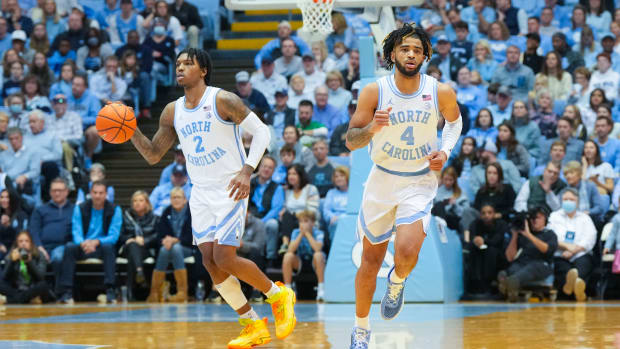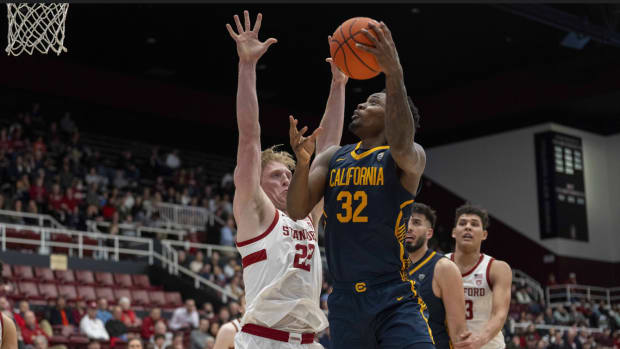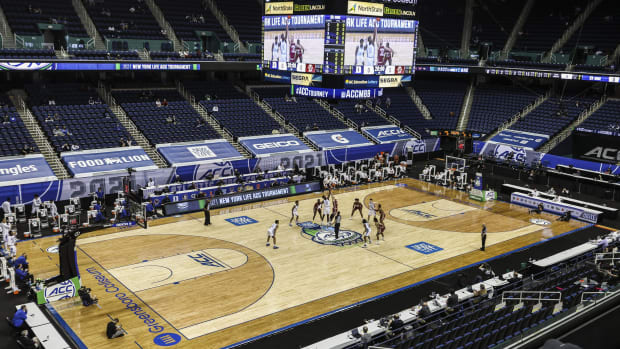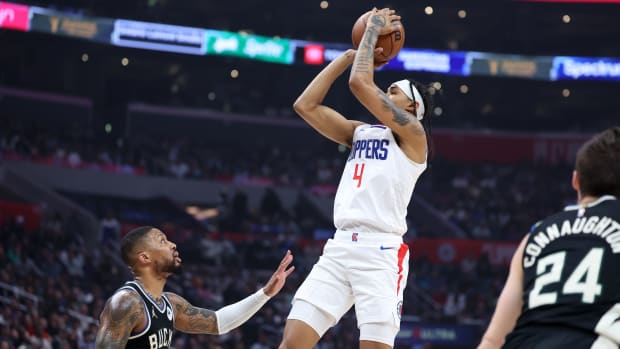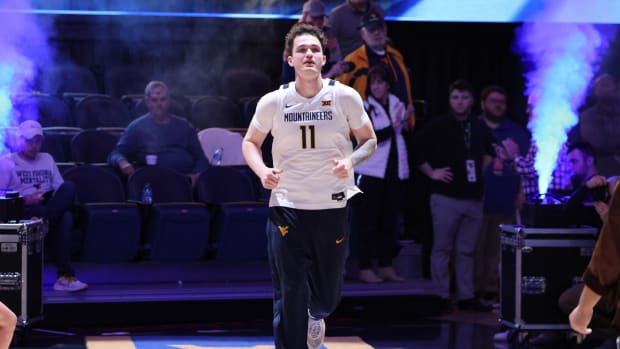In wake of Mike Rice scandal, NCAA needs to empower players
Rutgers finally did the right thing Wednesday and fired basketball coach Mike Rice, but the mess in New Jersey is only going to get messier if athletic director Tim Pernetti and president Robert Barchi's stories continue to differ as to when Barchi saw the damning video evidence that should have led to Rice's firing late last year. That web of semantics and/or lies could take a while to untangle and could cost more people their jobs, so for now let's concentrate on the one thing that could be done today to help protect athletes from abusive coaches such as Rice.
We know NCAA president Mark Emmert likes to ram new legislation through the Division I Board of Directors without taking the temperature of the athletic directors who actually have to implement and follow the new rules. We know Emmert, the subject of a scathing USA Today cover story that paints him as a sham artist always one step ahead of the posse, needs some positive p.r. So if Emmert is smart -- insert your own joke here -- he'll do this:
He would propose emergency legislation that immediately eliminates the rule that requires athletes receive a release from their current school before they can transfer to another school on scholarship. Then he'd get the Board of Directors to pass the rule and hold a press conference at the Final Four explaining how this strips some power from the schools and coaches and puts it in the hands of the athletes. Emmert would receive no resistance from athletic directors or school presidents, because while this might temporarily inconvenience them, the potential political hit they'd take for speaking out against student-athletes on a student-athlete welfare issue would be big enough to keep them quiet. Emmert would get his positive p.r. On the eve of the NCAA's biggest money-making venture, it would seem the NCAA and its power-conference schools actually care about these athletes instead of seeing them as revenue engines.
DOHRMANN: Mike Rice isn't the only person who should be punished in Rutgers scandal
Why would this help athletes? Because when Rice was whipping basketballs at his players' heads, they couldn't fight back. Rice and Pernetti controlled whether those players could be released to another school if they decided to transfer. They had to stay on Rice's good side -- whatever that looked like -- or he could keep them from receiving an athletic scholarship for their first year at another school. For many players, losing a scholarship for a year would make a transfer cost prohibitive.
Don't get confused. I'm not suggesting the NCAA lift the rule requiring players to sit out a year after they transfer. Yes, it's hypocritical that a coach such as Steve Alford can agree to a 10-year contract with New Mexico and bolt for UCLA 10 days later and players can't move freely between schools. But for practical purposes, the schools will never remove all the rules that limit the incentive for player movement between schools. But there is no reason for more than one of those rules. The loss of one year of eligibility is a significant enough penalty. The coaches shouldn't be allowed to hold the players' scholarships hostage.
If Rice had no control over where his players could transfer on scholarship, those players might not have been so docile when he flung basketballs at their heads. They might have gone to the administration and dropped a dime on their coach. Or they might have responded by giving Rice the knuckle sandwich he so richly deserved and then putting in transfer paperwork.
We see the stories every year of coaches holding players hostage. In late 2011, it was then-Tennessee football coach Derek Dooley trying to hold receiver DeAnthony Arnett hostage. (Dooley eventually caved to public pressure and released Arnett.) Last year, it was Saint Joseph's basketball coach Phil Martelli holding forward Todd O'Brien hostage. (Martelli never gave in and only came off looking like a bigger jerk.) This is not to insinuate that Dooley or Martelli are in anywhere near the same universe as Rice. Just to point out that the rule only exists to give very wealthy coaches more power over 20 year olds.
The Rutgers case illustrated why that much power can be dangerous. The players had no leverage, so they just took whatever abuse Rice dished out. Give the players a little leverage, and they can fight back. With a healthy fear of reprisal, a coach might not be so quick to chuck a basketball at a player's head.
